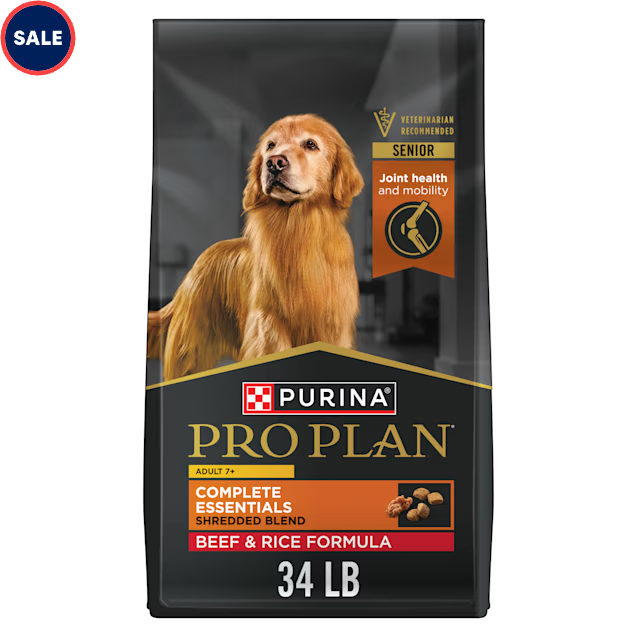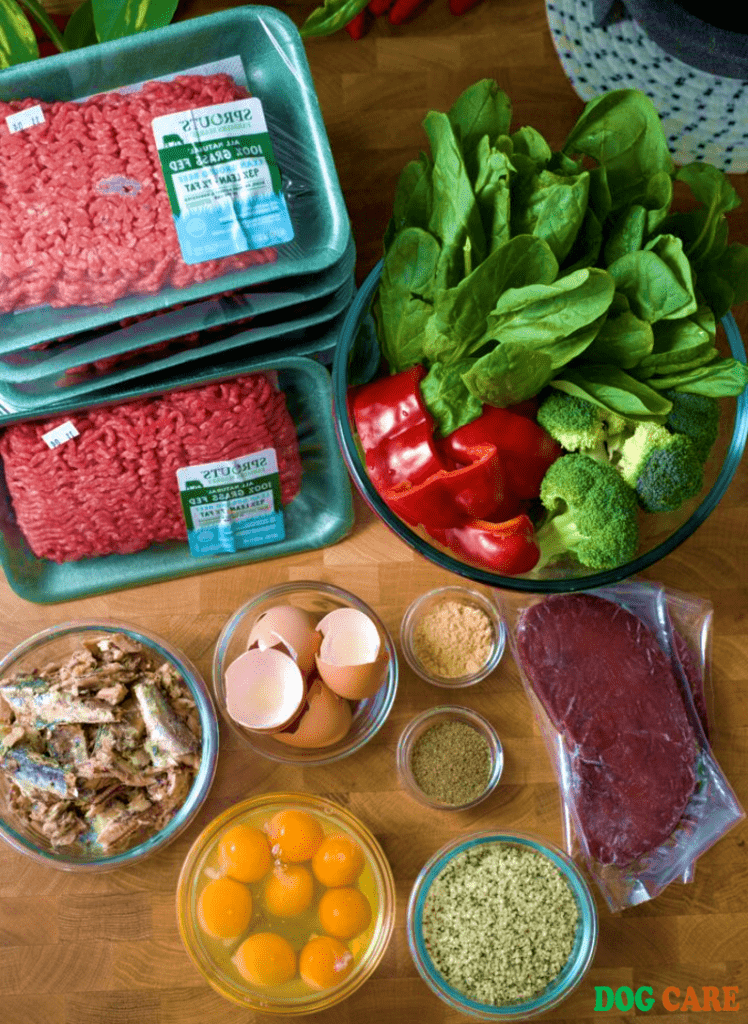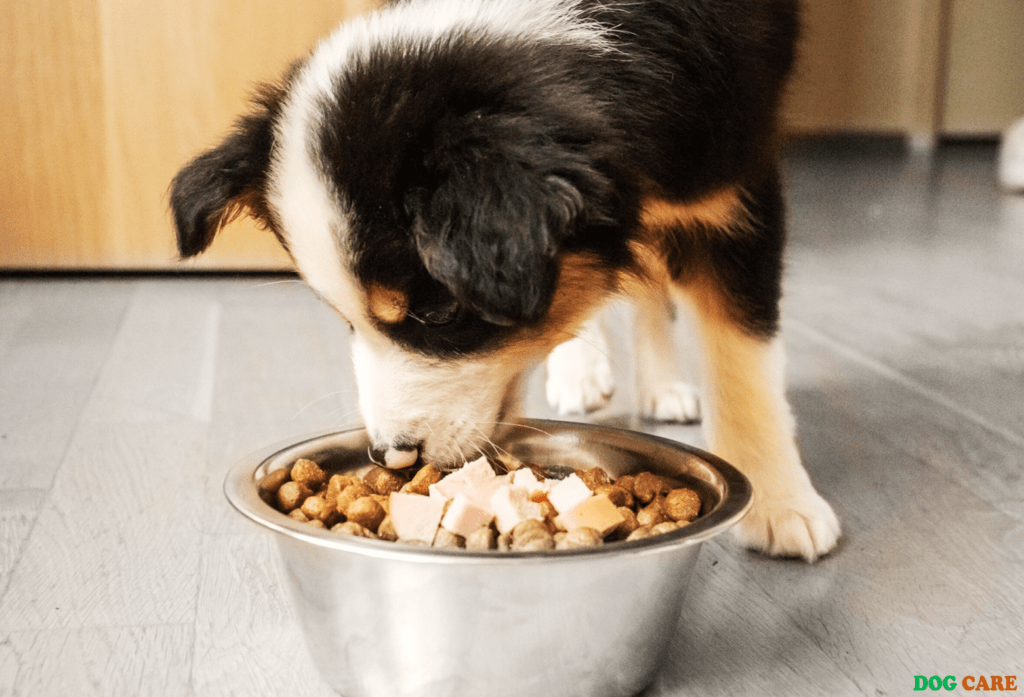The Best Dog Foods for Allergies : The best dog foods for allergies are those that are specially formulated for sensitive dogs and free from common allergens. These diets usually contain novel protein sources and limited ingredients to minimize the risk of triggering allergic reactions.

Credit: www.petco.com
Understanding Dog Allergies
Dog allergies can be a frustrating and uncomfortable experience for both dogs and their owners. Just like humans, dogs can develop allergies to certain foods, environmental factors, or even specific substances. In this article, we will explore common dog allergies, the symptoms to look out for, and how to diagnose and manage these allergies effectively. (The Best Dog Foods for Allergies)
Common Dog Allergies
There are several common dog allergies that pet owners should be aware of:
- Food Allergies: Dogs can be allergic to certain ingredients commonly found in their food, such as grains, beef, chicken, or even dairy products.
- Environmental Allergies: Dogs can also be allergic to environmental factors like pollen, dust mites, mold, or certain grasses.
- Contact Allergies: Some dogs may have allergies to certain substances they come into contact with, such as cleaning products, fabrics, or grooming products.
Symptoms Of Dog Allergies
If your dog is experiencing allergies, there are several common symptoms to look out for:
- Itchy Skin: Dogs with allergies often experience intense itching, which can lead to excessive scratching, licking, or biting at their skin.
- Ear Infections: Allergies can cause inflammation in a dog’s ears, leading to recurrent ear infections.
- Gastrointestinal Upset: Some dogs may develop gastrointestinal symptoms like diarrhea, vomiting, or gas when exposed to allergens.
- Respiratory Issues: Inhaled allergens can cause respiratory problems in dogs, such as coughing, sneezing, or wheezing.
- Skin Irritations: Allergic reactions can result in rashes, hives, redness, or hot spots on a dog’s skin.
Diagnosing Dog Allergies
If you suspect your dog has allergies, it’s essential to consult with your veterinarian for a proper diagnosis. Here are some common methods used to diagnose dog allergies:
- Elimination Diet: Your vet may recommend an elimination diet, where certain ingredients are removed from your dog’s diet to identify potential food allergies.
- Skin or Blood Tests: In some cases, skin or blood tests may be performed to determine if your dog is allergic to specific substances or environmental factors.
- Environmental Assessment: Your vet may examine your dog’s living environment to identify potential allergens and suggest ways to reduce exposure.
Once your veterinarian has identified the specific allergies affecting your dog, they can help you create a tailored treatment plan to manage your pet’s allergies effectively. This may include dietary changes, medication, or allergen avoidance strategies.

Credit: www.amazon.com
The Best Dog Foods for Allergies
Choosing The Right Dog Food For Allergies
Allergies in dogs are increasingly common, and finding the right dog food to alleviate their symptoms is crucial for their health and well-being. With so many options available, it can be overwhelming to choose the best dog food for allergies. In this article, we’ll guide you through the process of selecting the right dog food for your allergic pup.
Identifying Allergens In Dog Food
Before you can find the perfect dog food for allergies, it’s essential to identify the specific allergens that may be causing adverse reactions in your furry friend. Common allergens found in dog food can include ingredients such as beef, poultry, dairy, wheat, soy, and corn. Fortunately, there are various ways to determine which ingredients your dog may be intolerant to.
Hypoallergenic Dog Food Options
If your dog has a known food allergy or sensitivity, switching to a hypoallergenic dog food can be a game-changer. Hypoallergenic dog foods are specially formulated to exclude common allergens, making them ideal for dogs with allergies. These foods often feature limited ingredient lists, focusing on novel protein sources like turkey, duck, or salmon, which are less likely to trigger allergic reactions. Additionally, they may incorporate alternative carbohydrate sources such as sweet potato or pea fiber, minimizing the risk of grain-related allergies.
Reading And Understanding Dog Food Labels
When selecting a dog food for allergies, reading and understanding the labels is key. Dog food labels provide valuable information about the ingredients, nutritional content, and potential allergens in the product. Pay close attention to the ingredient list; the first few ingredients are the most significant, as they make up the majority of the formula. Look for specific proteins and carbohydrates that your dog has not been exposed to in the past, and avoid any ingredients that have previously caused adverse reactions.
It’s also important to understand the various terminologies used on dog food labels. For instance, a “grain-free” label indicates the absence of wheat, corn, or soy, which are common allergens. Similarly, a “limited ingredient” label signifies a simplified recipe that minimizes potential allergens. By familiarizing yourself with these label terms and ingredients, you’ll be better equipped to choose the right dog food for your allergy-prone pet.
Top Dog Foods For Allergies
When it comes to finding the best dog food for allergies, it’s essential to look for options that are specifically formulated to address your furry friend’s dietary needs. Whether your dog suffers from food sensitivities, skin issues, or stomach problems, choosing the right food can make a world of difference in their overall well-being. In this blog post, we will explore three top dog foods for allergies that have been highly recommended by veterinarians and pet owners alike.
Blue Buffalo Basics Limited Ingredient Diet
One of the top choices for dogs with allergies is the Blue Buffalo Basics Limited Ingredient Diet. This dog food is specifically crafted to minimize ingredients that may trigger allergic reactions while still providing the essential nutrients your pet needs. With a single source of animal protein and limited carbohydrate sources, this formula helps eliminate potential allergens such as grains, dairy, and eggs. Additionally, it contains Omega-3 and Omega-6 fatty acids for improved skin and coat health.
Natural Balance L.i.d. Sweet Potato & Fish Formula
If your dog suffers from food allergies or sensitivities, the Natural Balance L.I.D. Sweet Potato & Fish Formula may be the perfect solution. This limited ingredient diet uses premium-quality sweet potatoes and fish as the main sources of protein and carbohydrates, both of which are easily digestible for sensitive stomachs. This formula contains no artificial colors, flavors, or preservatives, making it an excellent choice for dogs with food sensitivities. The added blend of Omega fatty acids helps nourish the skin and promote a healthy coat.
Hill’s Science Diet Sensitive Stomach And Skin
Another fantastic option for dogs with allergies is Hill’s Science Diet Sensitive Stomach and Skin. This formula is specially designed to support digestive health and soothe sensitive skin. Made with high-quality ingredients, it is free from artificial colors, flavors, and preservatives that can potentially trigger allergic reactions. The blend of prebiotic fibers and antioxidants promotes a healthy digestive system and strengthens the immune system. Moreover, the added Omega-3 and Omega-6 fatty acids maintain a healthy skin barrier and promote a shiny coat.
When it comes to selecting the best dog food for allergies, it’s essential to consult with your veterinarian to identify your dog’s specific dietary requirements. Always read the product labels carefully, look for high-quality ingredients, and consider any unique needs your dog may have. By choosing one of these top dog foods for allergies, you can provide your four-legged friend with the nourishment they need while avoiding potential allergens that may cause discomfort or health issues.

Frequently Asked Questions On The Best Dog Foods For Allergies
What Is The Best Dog Food To Feed Dogs With Allergies?
The best dog food for dogs with allergies is one that is specifically formulated for their dietary needs. Look for hypoallergenic options, with limited ingredients or single protein source, and without common allergens like wheat, soy, or corn. Consulting with a veterinarian is essential for proper diagnosis and recommendations.
What Is The Best Food To Feed A Dog With Itchy Skin?
The best food to feed a dog with itchy skin is one that contains high-quality protein and omega-3 fatty acids. These can help promote healthy skin and reduce inflammation. Additionally, avoiding common allergenic ingredients like wheat, corn, and soy may also be beneficial.
What Is The Number 1 Food Allergy In Dogs?
The most common food allergy in dogs is typically attributed to protein sources like beef or chicken.
Is Salmon Or Turkey Better For Dogs With Allergies?
Salmon is generally better for dogs with allergies compared to turkey.
Conclusion
To ensure your dog’s health and happiness, it is crucial to provide them with a well-balanced and allergen-friendly diet. The best dog foods for allergies are those carefully formulated to minimize potential food triggers and packed with quality ingredients. From grain-free options to limited ingredient recipes, these specialized dog foods can help alleviate allergy symptoms and promote optimal well-being.
Remember, always consult with your veterinarian to find the most suitable option for your beloved furry friend. Trust the power of nutrition and give your dog the best chance at a life free from allergies.
The Best Dog Foods for Allergies


